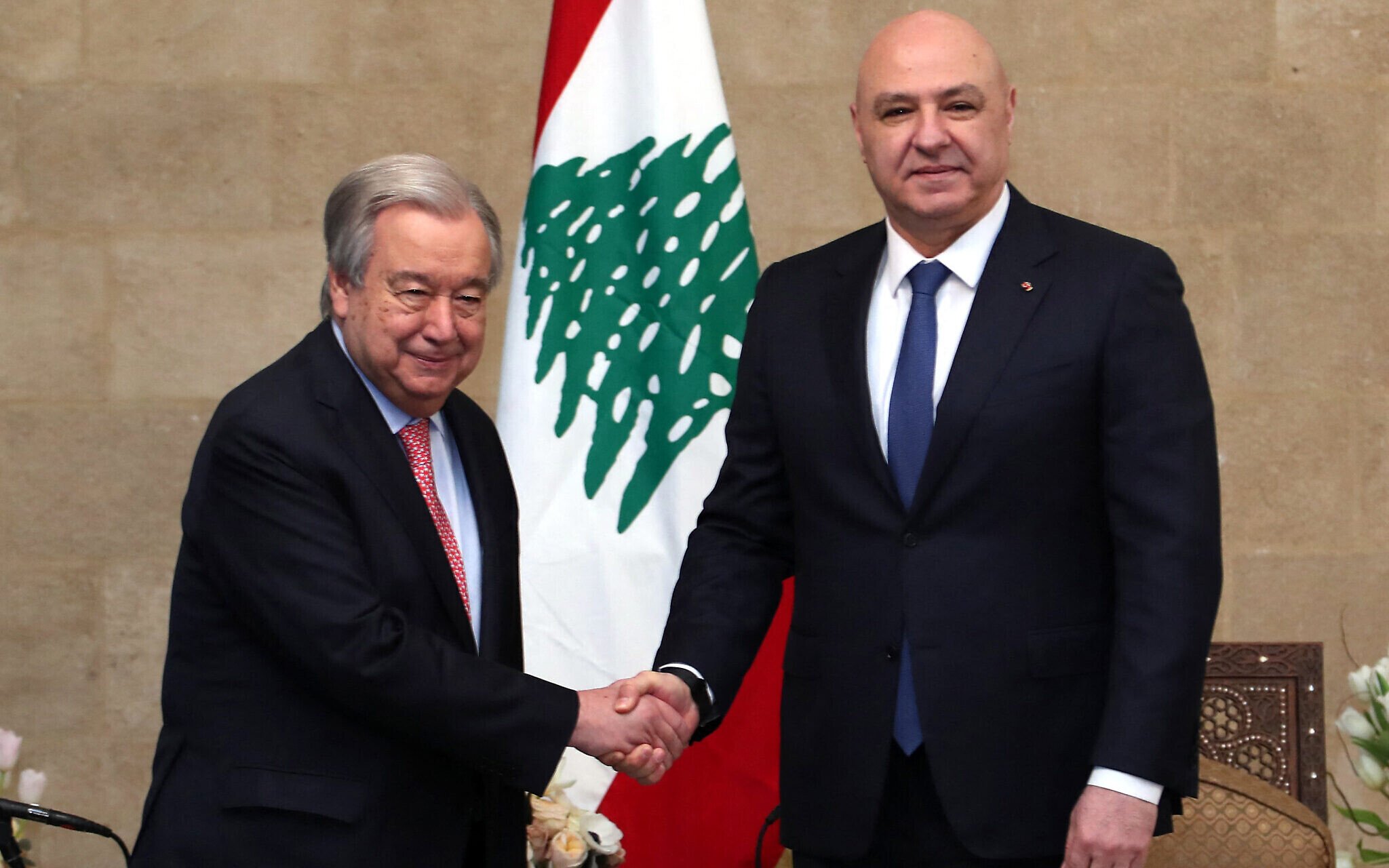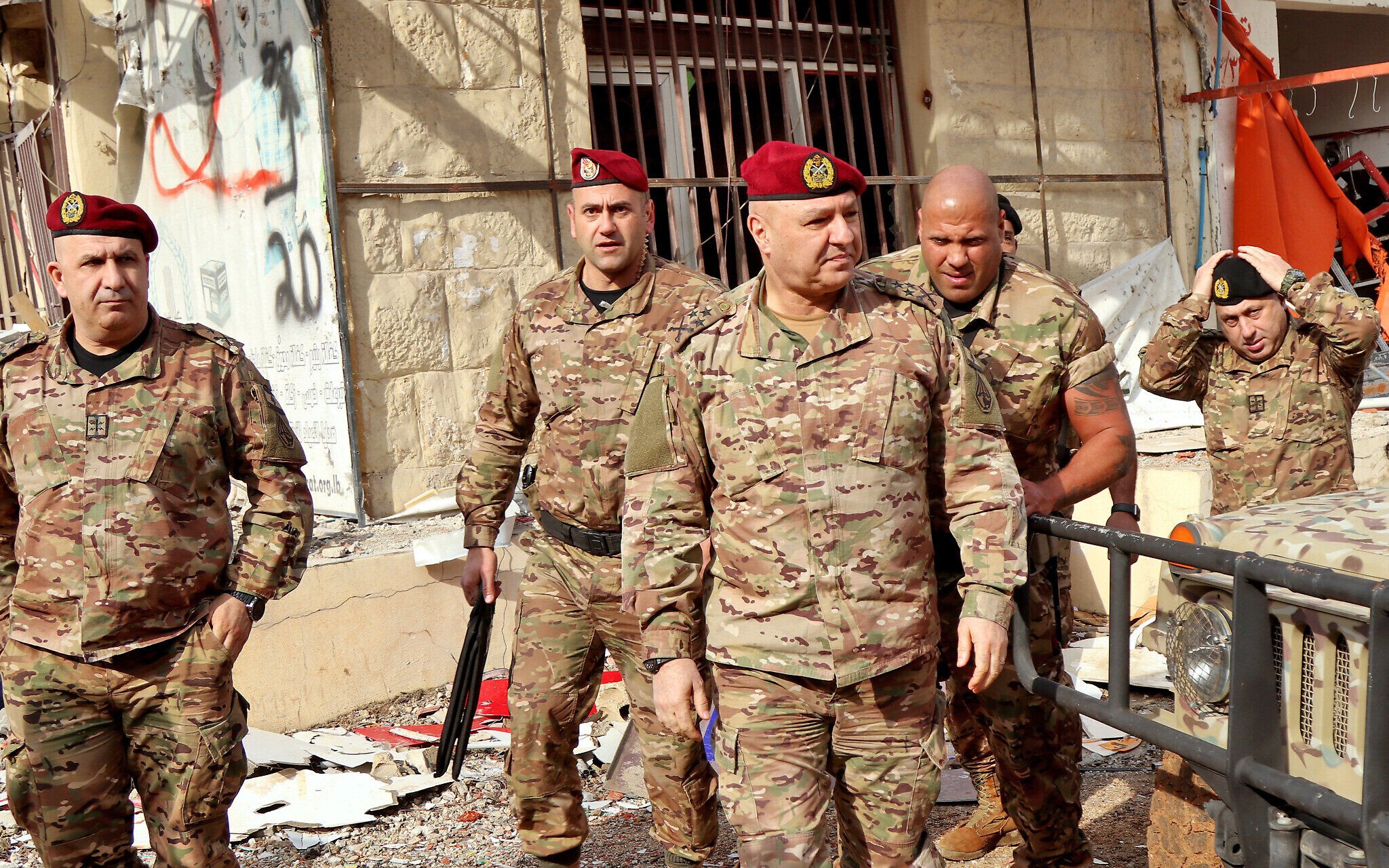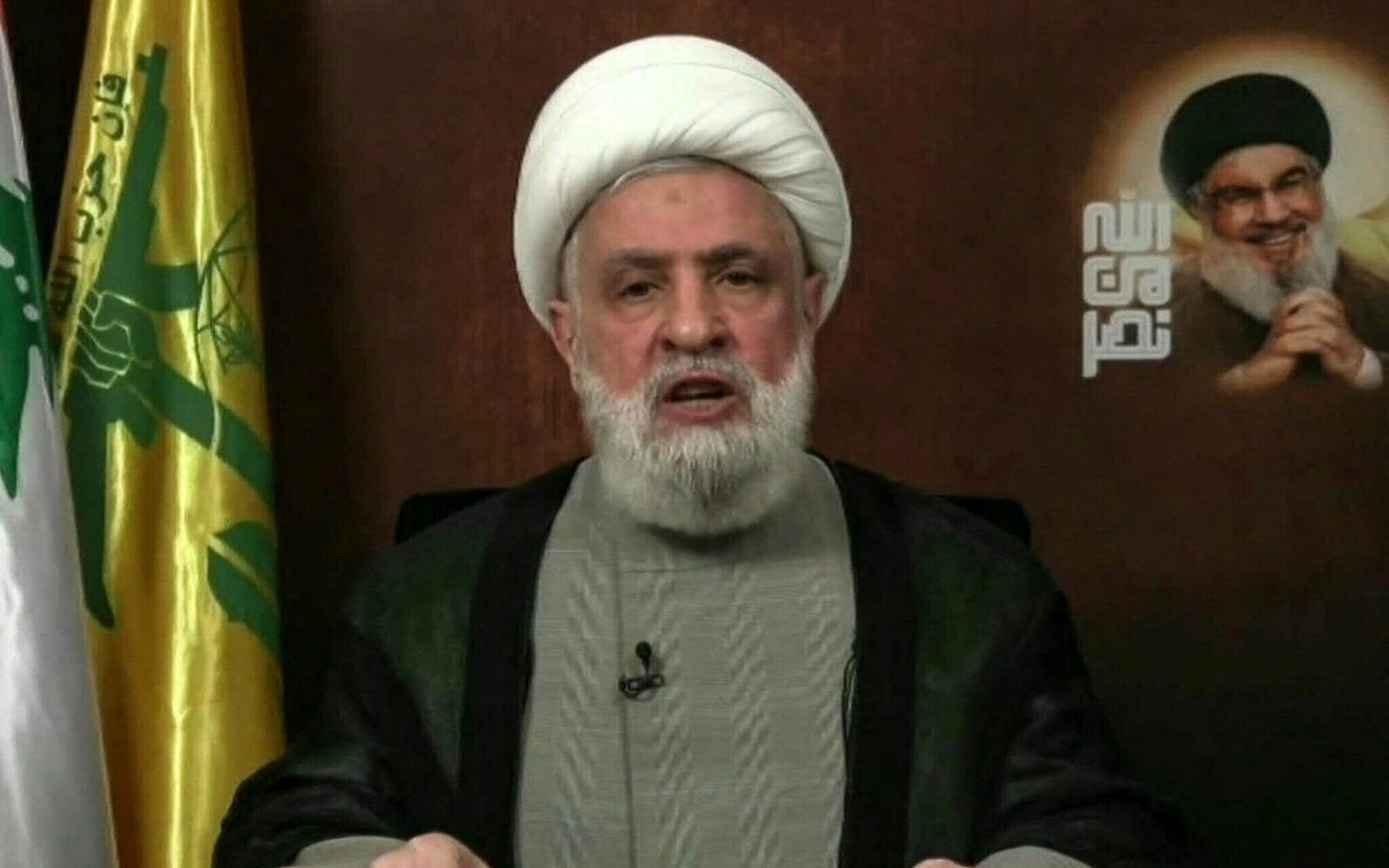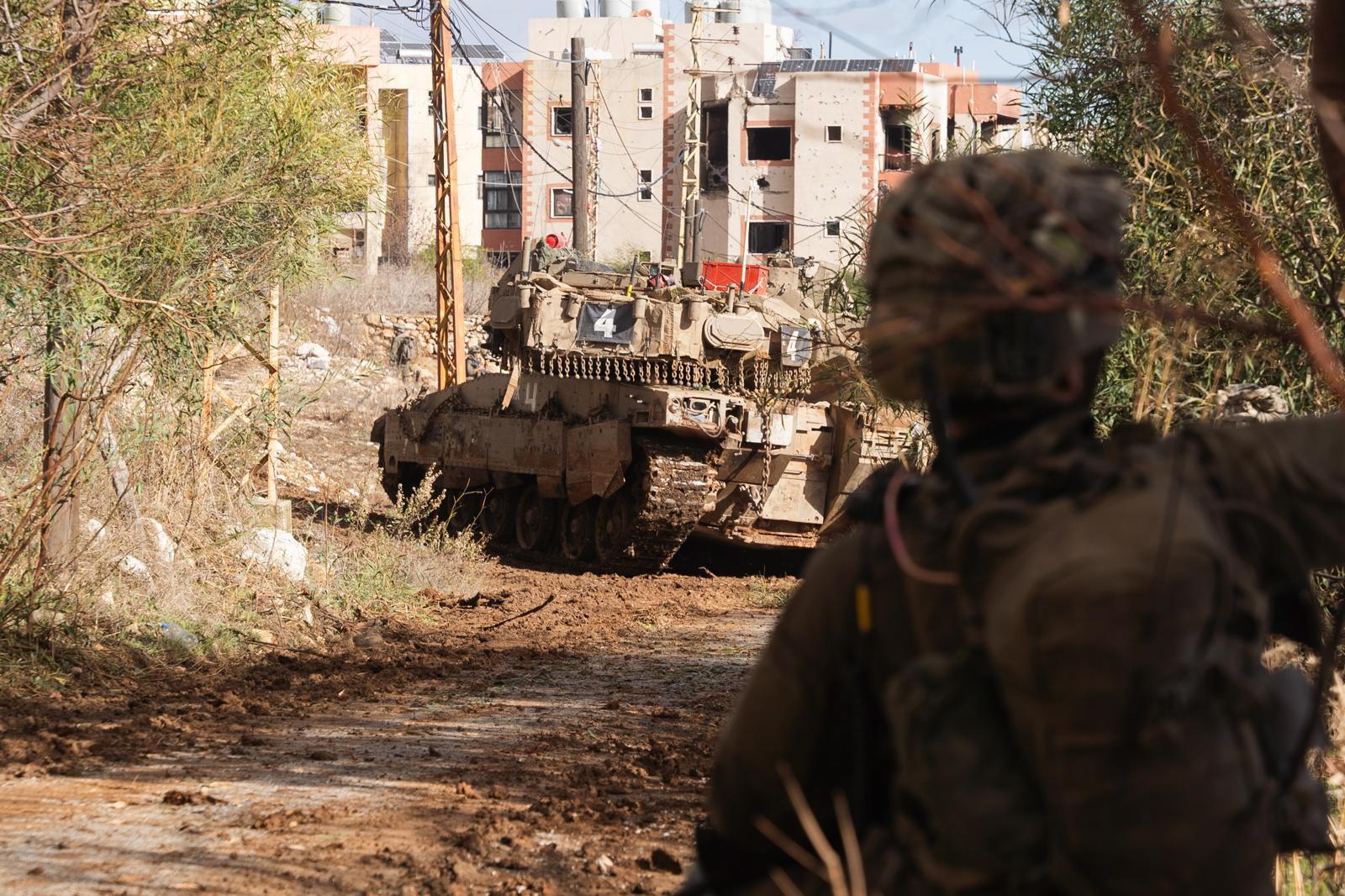



Lebanon’s new president Joseph Aoun said Saturday that Israel must “withdraw from occupied territories” in his country’s south by the January 26 deadline set in the Israel-Hezbollah ceasefire agreement.
In a speech before visiting United Nations Chief Antonio Guterres, Aoun also decried “Israel’s continued violations” of the agreement.
“Blowing up homes and destroying border villages, completely contradicts what was stated in the ceasefire agreement,” he said, according to the Lebanese president’s office.
His remarks followed a speech by Hezbollah leader Naim Qassem who urged Beirut to confront Israel over “more than hundreds” of violations.
Despite the ceasefire, which was signed November 27 after 14 months of war, Israel has continued striking south Lebanon, saying the attacks targeted Hezbollah fighters and weaponry violating the accord, including by continuing to operate south of the Litani River, some 30 kilometers (18 miles) from the border with Israel.
The agreement gives Israel the right to operate against imminent threats. Israel has also accused the Lebanese military and UN peacekeeping force UNIFIL of failing to enforce the agreement in the face of Hezbollah violations.
The ceasefire gave Israel 60 days, until January 26, to withdraw from south Lebanon. After that, the Lebanese Armed Forces and UNIFIL will be the only armed forces permitted to maintain a presence between Israel and the Litani.
However, there have been some reports in Israel that this deadline could be delayed, ostensibly due to the Lebanese military’s failure to deploy throughout the region quickly enough.
Aoun, elected January 9, has pledged to give the Lebanese state a monopoly on the right to bear arms — a veiled threat against Iran-backed Hezbollah, the only Lebanese militia that did not surrender its arms to the state after the 1975-1990 civil war.
A former head of the army, Aoun clinched the presidency with the backing of Saudi Arabia, the United States and France, which figures heavily in the politics of its former protectorate Lebanon.
On Saturday, Qassem called “on the Lebanese state to be firm in confronting violations, now numbering more than hundreds. This cannot continue.”
“We have been patient with the violations to give a chance to the Lebanese state, responsible for this agreement, along with the international sponsors, but I call on you not to test our patience,” he said in a televised speech.
Qassem’s speech came as Guterres met top Lebanese officials, including Aoun and his designated prime minister, outgoing International Court of Justice chief Nawaf Salam.
Analysts say Hezbollah’s weakening in the war with Israel allowed Lebanon’s deeply divided political class to elect Aoun and to back him in naming Salam as premier.
But Qassem insisted that the backing of Hezbollah, and its ally Amal, “is what led to the election of the president by consensus,” after around two years of deadlock.
“No one can exploit the results of the aggression in domestic politics,” he warned. “No one can exclude us from effective and influential political participation in the country.”
Qassem also praised the ceasefire deal in Gaza, saying the Palestinians’ sacrifices had stopped Israel’s attempts to erase “the Palestinian cause.”
Meeting with Aoun later Saturday, Guterres said that the election of a president and premier made it possible to consolidate the Lebanese institutions and to deploy the Lebanese army across the country, including areas from which Israel is to withdraw.
Guterres expressed hope that Lebanon could open “a new chapter of peace,” and pledged the international community’s support “for what we believe will be a speedy recovery of this country, making it again the center of the Middle East.”
“As soon as the conflict ends, reconstruction begins,” he said.
On Friday, Guterres had called for Israel to end its military operations and presence in Lebanon’s south. He also said UNIFIL had found more than 100 weapons caches belonging “to Hezbollah or other armed groups” since the ceasefire deal was concluded.
French President Emmanuel Macron, who met with Guterres in Lebanon on Friday, also said there must be an “accelerated” implementation of the Israel-Hezbollah ceasefire.
The US- and France-brokered ceasefire in late November came two months after Israel massively escalated operations in Lebanon in a bid to stem Hezbollah’s persistent rocket fire, which forced the displacement of some 60,000 residents of northern Israel.
Israel’s offensive in Lebanon all but decimated Hezbollah’s top brass, drastically weakening the terror group.
Unprovoked, Hezbollah began its near-daily attacks on October 8, 2023 — a day after fellow Iran-backed group Hamas stormed southern Israel to kill some 1,200 people and take 251 hostages, sparking the war in Gaza.



